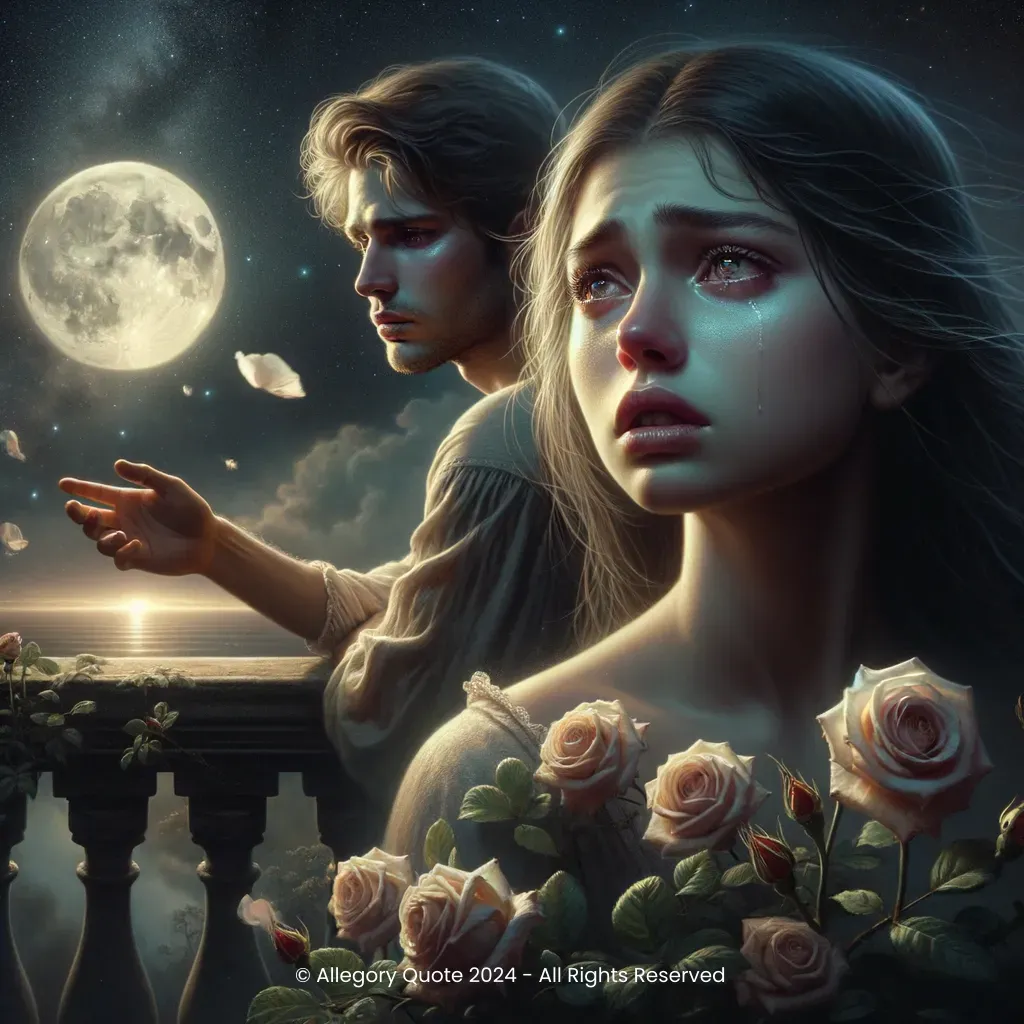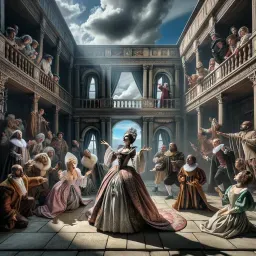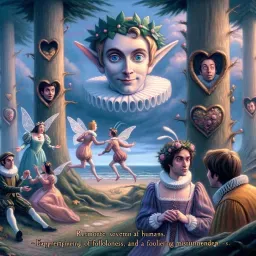”Good night, good night! Parting is such sweet sorrow,
that I shall say good night till it be morrow“

0
0
0
0
- Meaning
- These lines capture the bittersweet nature of saying goodbye to a loved one. Shakespeare uses the oxymoron "sweet sorrow" to evoke the complexity of emotions Juliet feels as she parts from Romeo. Parting causes sorrow, but it's sweet because it signifies the love shared and the promise of seeing each other again. This encapsulates the emotional rollercoaster of young, passionate love where joy and longing intertwine.
- Allegory
- The image shows the young couple on a balcony, capturing the iconic scene from "Romeo and Juliet" and conveying the tender yet sorrowful nature of their parting. The soft moonlight symbolizes the purity and warmth of their love, while the roses signify romance and the delicate nature of their relationship. The drifting petals represent the bittersweet emotions of saying goodbye. Finally, the dawning horizon hints at the hope and promise of their next meeting, embodying the enduringly hopeful and cyclical nature of love.
- Applicability
- The phrase is often used to express the complex emotions involved in farewells. In personal life, it can be applied to the experience of parting from loved ones, fulfilling the dual desire to remain in their presence while having to leave. It's a reminder that love and connection often come with the pain of separation, yet this pain is a testament to the bond shared.
- Impact
- Shakespeare's works, including this phrase, have had a profound cultural impact. These lines have permeated literature, theater, and media, highlighting the enduring nature of Shakespearean themes. The balcony scene itself is iconic and has inspired countless adaptations and references in other works of art and popular culture, becoming a symbol of romantic devotion.
- Historical Context
- The phrase originates from the Elizabethan era, when "Romeo and Juliet" was first performed, around 1595-1596. The play belongs to a larger historical context of Renaissance literature where themes of love and tragedy were explored intricately. The social and literary culture of the time celebrated such intricate explorations of human emotions and relationships.
- Criticisms
- While generally celebrated, some critics argue that the intense romanticism of the phrase—and "Romeo and Juliet" as a whole—can romanticize impulsive and reckless behavior, especially in young people. The phrase and the play can sometimes be seen as promoting a rather idealized and unrealistic portrayal of love.
- Variations
-

The golden age is before us, not behind us.
-

Et tu, Brute?
-

The course of true love never did run smooth.
-

Parting is such sweet sorrow.
-

A little more than kin, and less than kind.
-

Now is the winter of our discontent.
-

All that glisters is not gold.
-

This above all: to thine own self be true.
-

Beware the Ides of March.
-

The lady doth protest too much, methinks.
-

Lord, what fools these mortals be!
-

If music be the food of love, play on.
No Comments